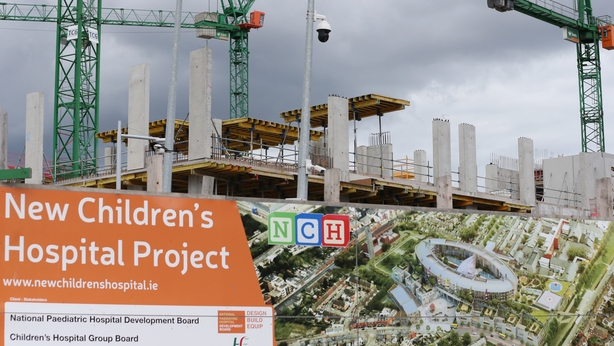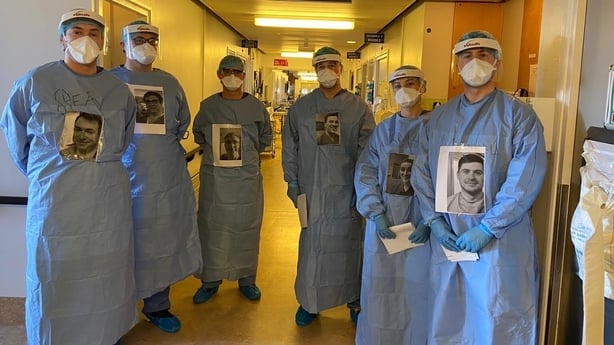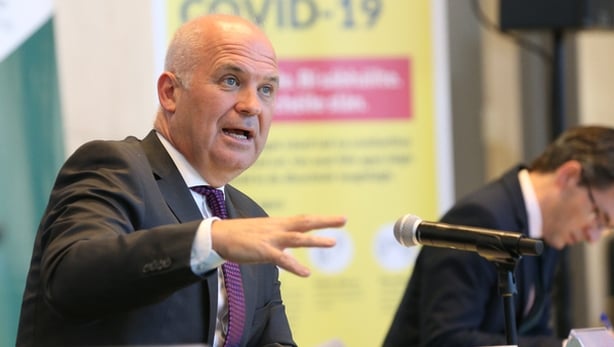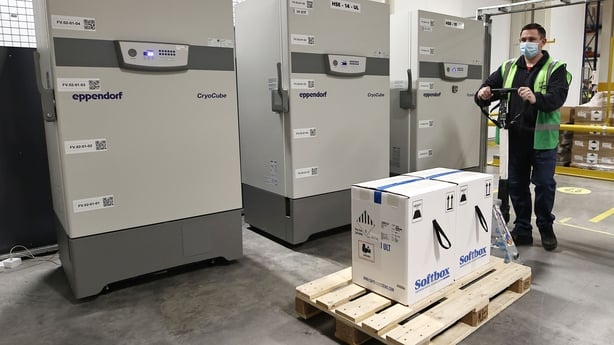In a normal year in health, there are usually some constants, such as hospital overcrowding, long waiting lists and major funding pressures.
In 2020, these issues did not disappear, but they were pushed down the agenda, as coronavirus dominated events, and occupied much of the time for health staff and officials.
So it makes for 2020 being an outlier year, when making comparisons with other periods in the health service.
It seems a long time ago now, but 6 January saw a record for hospital overcrowding, with 760 patients waiting, according to the figures collected by the Irish Nurses & Midwives Organisation.
Hospital overcrowding has not been solved and remains a big issue to eliminate.
The absence of any notable influenza circulating also helped ease pressure on emergency departments and beds this year.
Due to Covid-19, fewer people overall attended hospital emergency departments. However, during December, daily overcrowding figures of close to 300 were not uncommon.
There was controversy after building work on the new €1.7bn National Paediatric Hospital was halted for a time, as construction work around the country stopped because of the virus.

There was also a dispute over the costs of resuming work on the project, arising from Covid-19 restrictions, with Minister for Health Stephen Donnelly calling on the builders to please get back on site, which they did.
In the early part of the year, patient advocate Mark Molloy resigned from the board of the HSE.
He expressed concern about not having a veto on significant board decisions that he had an issue with, given his independent knowledge of the workings of the organisation.
Towards the end of the year, Professor Anne Scott was appointed as a new independent chairperson for the CervicalCheck Steering Committee, which among other things oversees reform of the system and the implementation of the Scally Report recommendations.
The 221+ CervicalCheck Patient Support Group remained deeply unhappy towards year end with key aspects of the Government's tribunal of compensation.
During the General Election, there were many promises around improving the health system.
Parties committed to more beds, staff and free GP care, with spending promises of between €2bn and €5bn. Then coronavirus arrived.
The first case of Covid-19 in the Republic of Ireland was officially reported on 29 February. The first death was reported here on 11 March.
By the end of the year, more than 2,200 people have died from the virus here and over 85,000 confirmed cases had been recorded.

For 2020, the health service was allocated €17bn, although the funding requirement rose significantly during the year, with the pressure posed by Covid-19, particularly the cost to the HSE of personal protective equipment and building a test and trace system from scratch.
The ability and speed of the HSE in testing and tracing confirmed cases came under the spotlight. At one point, in one public health area, confirmed cases were asked to do their own contact tracing due to the pressure on the system.
Frontline health staff bore much of the brunt of coronavirus. More than 12,400 health staff became infected with the virus.
To date, there have been eight deaths among health staff from the disease.
One of the most dramatic policy decisions during the health emergency was the move by the Government to take over, by agreement, most private hospitals, to have access to surge capacity during the pandemic.
It effectively made private hospitals public facilities and locked many private patients out of care that their private health insurance covered them for.
While insurers reimbursed their subscribers for some of this, it was an unprecedented intervention by the State. It also briefly gave people a glimpse of what Sláintecare might look like in terms of a one-tier health system.
A new entity, the National Public Health Emergency Team, became one of the most well-known bodies tasked with advising the Government on dealing with the pandemic.
There was much tension between NPHET and Government and in early October, Tánaiste Leo Varadkar said that NPHET had not thought through its advice on Level 5 restrictions.
With Covid-19, Chief Medical Officer Dr Tony Holohan became known to a much wider audience of people in Ireland, as did other key members of NPHET. Their every utterances made news and were parsed and analysed.

One of the first controversies was the management and support from the State in dealing with early outbreaks in nursing homes and rising deaths in long-term care facilities.
For the Minister for Health, it was a year of two halves. Simon Harris was minister up to late June at which point Stephen Donnelly became the new incumbent on Miesian Plaza, on Baggot Street in Dublin.
For the start of the health emergency here and the first lockdown, Simon Harris was the minister in charge. He was a very public figure during this time with almost daily media appearances on the issue.
As minister, Stephen Donnelly adopted a different lower-key approach. There was drama in September when the whole Cabinet had to self-isolate for a short period after Minister Donnelly fell ill.
It followed advice from the acting chief medical officer, Dr Ronan Glynn. Minister Donnelly later tested negative for the virus.
The arrival of Covid-19 resulted in screening services being paused from March to July and access to many other health services became limited, due to safety restrictions around coronavirus.
Mental health services were also badly affected, although some moved to online support.
Health statistics for 2020 will be heavily skewed due to Covid-19, making comparisons with other years difficult.
Waiting lists have remained stubbornly high. By December, the national public hospital waiting list figures were at over 827,000 patients.
In Budget 2021, the HSE received its biggest funding allocation, due to the continued threat posed by Covid-19.

Managing Covid-19 was undoubtedly the biggest challenge ever faced by the HSE and the public face of accountability for this was its chief executive, Paul Reid.
By the end of the year, the next massive test for the HSE was clear, how to deliver a national immunisation scheme with new vaccines for Covid-19 being approved.
The publication of the Government’s Vaccination Strategy in December was welcomed, but it also brought questions about the decisions on priority groups and when exactly in 2021 mass vaccination might begin.


